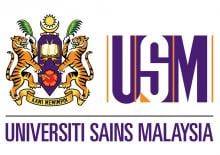Peer Reviewed
News

08 Oct 2006
Women with mutations in a gene called BRIP1 have twice the normal risk of breast cancer, according to a study to be published in the November issue of Nature Genetics.

04 Oct 2006
The electronic nose is an array of gas sensors which measure the frequency changes of volatile vapors on its surfaces. The 'electronic tongue' consists of lipid polymer membrane electrodes (to mimic human tongue) for the analysis of liquid samples.

04 Oct 2006
This study aim to investigate the knowledge and attitudes of nursing students in Dar es Salaam regarding HIV infection and AIDS, identifying in the process, areas which need to be changed or emphasized for provision, of better nursing care of HIV–infected and AIDS patients, and with minimal occupational risk of acquiring HIV infection.

04 Oct 2006
Summaries of newsworthy papers from Nature include Quantum physics: Quantum teleportation between light and matter, Geology: How does the Earth recycle? and finally… Whiskers bristle with news

04 Oct 2006
The last thing most people want in their computer's memory is a virus. But now a team of scientists has used a virus to make a memory device, according to research in this month's Nature Nanotechnology.

03 Oct 2006
Potential novel targets for anti-cancer therapy are revealed in a paper to be published online this week in Molecular Systems Biology. Forest White and colleagues investigated the EGFR/HER2 signaling pathway, which is perturbed in human breast cancer.

01 Oct 2006
China is certainly an important portfolio addition, but its growth story is not as impeccable as portrayed usually. By trying to avoid dollar weakness in the US, Gulf investors could be hit by dollar weakness and declining exports in China instead.

01 Oct 2006
A molecule that makes mammals feel full up has been identified, and drugs that target it may help to treat obesity. Other newsworthy papers include Vision: Bug eyes get a makeover - Nature, One step toward more efficient cloning - Nature Genetics, New strategy for controlling inflammation - Nature Immunology

29 Sep 2006
Recommendations published in the October issue of Nature Clinical Practice Gastroenterology & Hepatology should help physicians to identify quickly whether or not a patient is suitable for treatment with nonsteroidal anti-inflammatory drugs (NSAIDs).

28 Sep 2006
Dust mites produce an allergen that disrupts the skin’s ability to act as a barrier to other allergens and environmental irritants according to research published this week in the Journal of Investigative Dermatology.

27 Sep 2006
The East Mediterranean region is part of the Middle East and North Africa region (MENA), which is recognized as one of the driest and most water scarce regions in the world. This paper described the roots of water conflict over the shared water resources particularly in Turkey, Iraq, Syria, Lebanon, Jordan, Palestine and Israel.

27 Sep 2006
Methane on the rise?, 1918 influenza virus triggered exaggerated immune response, Malaria riddle explained, Massive stars require gas doughnuts, Extremophile’s extreme repair job, Solid turns into bizarre state of matter, Hot condensation and Silk spun by tarantula feet

26 Sep 2006
Three new papers from Indian Journals tell us about the best time to harvest for herbal drug purposes, zinc recovery from polluted waters and the occurrence of Shiga toxigenic Escherichia coli in livestock and poultry in north-eastern India

26 Sep 2006
A special focus issue on childhood developmental disorders, including specific language impairment and dyslexia, autism, and the mental retardation syndrome fragile X, is presented in the October issue of Nature Neuroscience. Four articles explore current knowledge about these disorders and suggest avenues for future research.

24 Sep 2006
The most constructive offer that Iran can make at this stage is not by lending a proactive hand, but by not extending a hand at all. The magic potion that Iraq urgently needs is an immediate end to Iran's interference.

24 Sep 2006
Cancer can be tackled with a combination of drug and genetic therapies, such that the effectiveness of the individual treatments are enhanced, as shown by Yi-Yan Yang and colleagues in the October issue of Nature Materials.

22 Sep 2006
Heart disease should top the list of women’s health concerns but, according to a Viewpoint article to be published in the October issue of Nature Clinical Practice Cardiovascular Medicine, it doesn’t even come close.

22 Sep 2006
The most noteworthy aspect of Al Qaeda in the post 9-11 environment has been its broadened appeal among the Muslim community. Five years after 9-11, we face a greater threat than at 9-11. What are the successes and failures of that campaign?

21 Sep 2006
To people around the world, the coup de’tat in Thailand on September 20, 2006, was a big shock. In contrast, to many Thais, especially those who are over 25 years or older, the coup was not a big scare to them. Since, Thailand became a democracy country 73 years ago, Thailand experienced several bloodless coups.

21 Sep 2006
As the US ratcheted up the rhetoric about "Islamic extremism" and the "continuing terrorist threat (still) confronting the nation" while commemorating the fifth anniversary of the 9/11 attacks, it is worth noting how Washington invited trouble due to its insensitive policies in the Middle East and shortcomings of its intelligence units.

21 Sep 2006
A new technique to visualize HIV particles inside infected cells as they make their way to the nucleus is reported in the October issue of Nature Methods. Pierre Charneau’s and colleagues show HIV’s internal voyage with unprecedented detail for the first time.

21 Sep 2006
A genetic study to be published in The EMBO Journal could help in the design of better therapies to treat some cases of immunodeficiency and inflammation.

20 Sep 2006
Palaeontologists have made a stunning find in the Ethiopian desert — the fossil remains of a child from the primitive human species Australopithecus afarensis, of which the iconic fossil Lucy is a member. The skeleton, represents the first juvenile remains from this chapter of human evolution, making it the oldest child ever discovered.

20 Sep 2006
Summaries of newsworthy papers from Nature including Obesity drug development in double bind, Atlantic waters influence El Niño impact, ‘Atomic clock’ gets designer label, Accelerated Greenland ice sheet melting confirmed, Creating a 'shadow person' illusion

18 Sep 2006
When the decreasing availability of freshwater is combined with the extent to which it is shared internationally, the potential for disputes between countries over this precious resource becomes obvious. How do states deal with these disputes?

18 Sep 2006
A gene that enables rice to survive complete submergence has been identified by a team of researchers at the International Rice Research Institute (IRRI) in the Philippines and at the University of California's Davis and Riverside campuses.

17 Sep 2006
Being the world largest producer of palm oil, Malaysia generates a huge quantities of oil palm biomass. This research project aims to develop a technology to convert palm oil biomass to green fuel using supercritical water technology.

17 Sep 2006
Summaries of newsworthy papers from Nature and Nature Research Journals including Quantum teleportation with increased capacity – Nature Physics, Overcoming bacterial virulence – Nature Immunology

14 Sep 2006
The Arab countries are surrounded by countries with nuclear capabilities. Israel, Pakistan, India and, sooner or later, Iran. It is in this context that the GCC secretary-general issued a wake-up call to the "Arab Nation" to adopt a new regional strategy on the nuclear issue by abandoning the current zero nuclear option

13 Sep 2006
Nature VOL.443. Summaries of newsworthy papers include Why summer heatwaves could be more common, Changes in the Sun’s luminosity are not responsible for climate change, How oxygen gangs up under pressure, Shaking a quantum bridge, Galaxy formation kicks off
Events
Sorry, no events coming up for this topic.
Researchers
Sorry, no researchers coming up for this topic.
Giants in history
Sorry, no researchers coming up for this topic.

